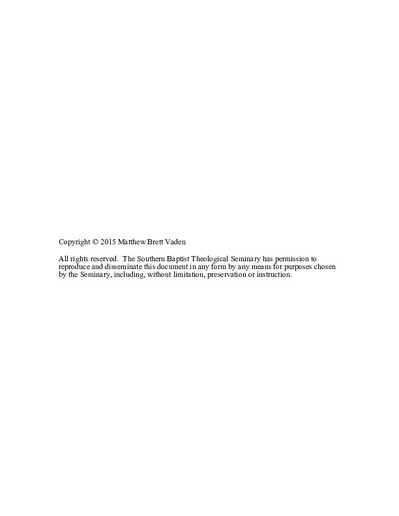| dc.description.abstract | The aim of this study, as explained in the first chapter, is to synthesize insights from Christianity and secular psychology in order to answer four questions: (1) Why do people reflect upon themselves? (2) Why do they understand themselves wrongly (i.e., constructing a false self)? (3) What does true self-understanding entail? (4) What interventions can foster true self-understanding? Chapter 2 presents a biblical response, with specific focus on passages from Proverbs, Matthew’s Gospel, and Paul’s letters. Chapter 3 collects answers from the writings of four Christian thinkers: Augustine of Hippo, Martin Luther, Søren Kierkegaard, and Thomas Merton. Chapter 4 examines answers from two modern psychologists, D.W. Winnicott and Susan Harter. The fifth chapter concludes with a synthesis of these answers, in order to propose a Christian perspective on the false self and true self. | en_US |

